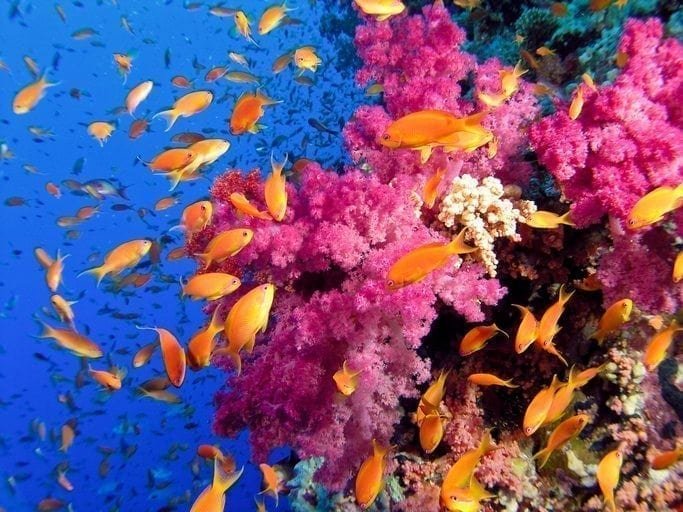THE INNOVATION AWARD
WINNER: Ben Kibel
In 1999 Ben Kibel, a mechanical engineer, and his brother Pete, a fisheries specialist and biologist, founded Fishtek Marine to develop gadgets that make fishing less harmful to marine life and to the environment.
When fishing for swordfish, fishers tend to use chemical lightsticks or glowsticks to attract the fish. They are highly polluting if they are discarded in the ocean, which about 700 million are each year. They are also expensive: about 10% of a fishermen’s expenses.
Fishtek’s solution, ProGlow, is an inexpensive, endurable, reusable alternative, weighing just 17 grams and depth-rated to 1,000 metres. There are three models with varying degrees of brightness, all fuelled by two replaceable AAA batteries, and the basic model should last two years.
THE PUBLIC AWARENESS AWARD
WINNERS: James Honeyborne, Mark Brownlow & team
16 years after the original Blue Planet series, the BBC’s Natural History Unit, in partnership with the Open University, produced a follow-up, a seven-episode series presented by Sir David Attenborough and broadcast at prime-time on Sunday evenings.
Towards the end of the Blue Planet II series last year, it was attracting audiences of 17 million; when Theresa May visited China in January, she took Xi Jinping a copy of the box set.
The final episode, Our Blue Planet, examined the toll taken on the oceans by humanity through over-fishing (and discarded fishing gear), the careless trashing of plastics, especially those used just once, noise and light pollution.
If we do not act, was its message, then the marine life you have marvelled at will be gone. As the series’ executive producer James Honeyborne puts it: ‘Ocean-related problems tend to be global issues. If you drop a bit of plastic in one ocean, it can end up in another, even several oceans away. So it’s great for this series to get into every country it can.’
The series continues to be cited as an inspiration, not least by Buckingham Palace. In February, a palace spokesperson announced that single-use plastic bottles and drinking straws would no longer be used on royal estates.
THE VISIONARY AWARD
JOINT WINNER: Kristina Gjerde
The currents that cause sargassum weed to aggregate in the Sargasso Sea have also caused it to become a gigantic gyre, or agglomeration, of plastic waste, so endangering the unique species for which it is a breeding ground.
Thanks in part to the American lawyer Kristina Gjerde, adjunct professor at the Middlebury Institute of International Studies at Monterey, California, and senior high seas adviser to the International Union for the Conservation of Nature’s Global Marine and Polar Programme, this ‘wondrous place’ is now the object of a campaign to protect it and its ecosystem.
The Sargasso Sea Alliance, which she co-founded in 2010, aims to ensure legal protection for fragile ecosystems and provide insight to aid the establishment of other Marine Protected Areas. Applying the rule of law to the high seas is one thing, enforcing it is another. This, as she said in her TED talk, leads her to her second passion – space technology. ‘I wanted to be an astronaut, so I’ve constantly followed the tools available to monitor Earth from outer space.’ This enables the tagging and tracking of fishing vessels.
JOINT WINNER: Judi Wakhungu
Last August, Kenya became the latest country in Africa to ban plastic bags, following the lead set by Rwanda in 2008. It was the culmination of a long campaign driven by Professor Judi Wakhungu, then cabinet secretary for environment, water and natural resources since 2013.
Now visitors arriving by plane are required to leave duty-free and other plastic carriers at the airport, and they may not be brought ashore from boats. Prior to the ban, an estimated 24 million bags were handed out each month across the nation (which has a population of 41 million), 86,000 a day in Nairobi alone. Few were responsibly disposed of, let alone recycled, hence the 24 tonnes of plastic waste that was collected across the 188 square kilometres of lake.
The environment can only benefit from the ban. ‘I am excited my efforts have yielded this’, says Wakhungu, whose masters degree was in petroleum geology and who has spent most of her distinguished career in the energy sector, having worked in the Ministry of Energy and Regional Development, investigating geothermal energy in the Rift Valley. ‘It is something I have been yearning for.’ The blight caused by plastic bags was becoming an ‘environmental nightmare’.
CAMPAIGN OF THE YEAR
WINNER: Establishing the Ross Sea Marine Protected Area
The Ross Sea is the southernmost part of the Southern Ocean. It extends into a huge bay under the Ross Ice Shelf, part of the polar ice cap that is Antarctica. It remains one of the last, perhaps the last, genuinely pristine place on Earth, home to a fully functioning marine ecosystem that is still miraculously free from pollution, untainted by mining and untroubled by invasive species.
Many individuals and organisations were involved in this achievement, but the judges singled out the below individuals for their outstanding contributions.
George Watters, chair, CCAMLR Working Group on Ecosystem Monitoring and Management; Peter Young, John Weller And David Ainley, The Last Ocean film-makers, Lewis Pugh, founder of the Lewis Pugh Foundation.
Click here for more about the Ocean Awards and 2018’s winners.
 Play Video about This Rock Might Just Save The World
Play Video about This Rock Might Just Save The World Play Video about Play 2 hours of rock
Play Video about Play 2 hours of rock Play Video about Play 2 hours of brook
Play Video about Play 2 hours of brook Play Video about Play 2 hours of sheep
Play Video about Play 2 hours of sheep











































